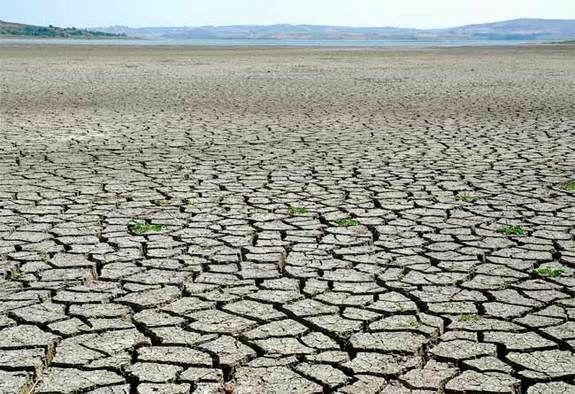Agriculture Canada has officially confirmed that much of the Atlantic region is now experiencing an extreme drought, intensifying concerns over water shortages and agricultural impacts. The announcement underscores the severity of prolonged dry conditions affecting provinces such as New Brunswick, Nova Scotia, and Prince Edward Island, where farmers and communities face mounting challenges amid dwindling soil moisture and strained water resources. This designation marks one of the most critical drought statuses and raises urgent questions about the region’s environmental and economic resilience.
Atlantic Region Faces Severe Agricultural Impact as Extreme Drought Conditions Persist
Farmers across the Atlantic region are grappling with unprecedented challenges as Agriculture Canada officially categorizes much of the area under severe drought conditions. Crops are wilting early, and water reserves are dwindling, threatening both yields and local economies. The prolonged dry spell has sparked concerns among agricultural communities, whose livelihoods depend heavily on timely rainfall and moisture-rich soil. Key affected crops include potatoes, grains, and berries, all showing signs of stress due to lack of irrigation and ground saturation.
Experts warn that if conditions do not improve soon, repercussions will cascade beyond farms, impacting food supply chains and regional markets. The government’s response includes emergency funding and recommendations tailored to help farmers adapt. Key points highlighted by Agriculture Canada include:
- Implementation of advanced water conservation techniques
- Support for crop diversification to enhance resilience
- Monitoring and management programs to mitigate soil degradation
- Increased collaboration with local stakeholders for real-time drought tracking
| Crop Type | Estimated Yield Loss (%) | Mitigation Strategy |
|---|---|---|
| Potatoes | 35% | Drip irrigation and mulching |
| Grains | 28% | Drought-resistant seed varieties |
| Berries | 40% | Shade netting and frequent monitoring |
Government and Experts Urge Immediate Water Conservation Measures to Mitigate Crop Losses
With much of the Atlantic region now officially classified under extreme drought, Agriculture Canada is sounding the alarm on the urgent need for water conservation. Experts stress that the ongoing dry conditions threaten to cause significant crop losses if immediate action is not taken. Farmers are being encouraged to implement efficient irrigation techniques, reduce water waste, and collaborate on community-level conservation efforts to protect this season’s yields.
Authorities have outlined a series of recommended measures to mitigate the impact on agriculture and safeguard food security in the region:
- Prioritize watering during cooler hours to minimize evaporation.
- Adopt drip irrigation systems for targeted water delivery.
- Mulch crops to retain soil moisture longer.
- Monitor soil moisture regularly to avoid over-irrigation.
- Encourage crop rotation with drought-resistant varieties.
| Crop Type | Expected Yield Loss (%) | Recommended Conservation Action |
|---|---|---|
| Potatoes | 30% | Increase drip irrigation |
| Grains | 25% | Cultivate drought-tolerant varieties |
| Vegetables | 40% | Mulching and precise watering |
| Fruits | 35% | Reduce watering frequency, deep soak |
Farmers Implement Adaptive Strategies Amidst Prolonged Dry Spell and Uncertain Weather Forecasts
Faced with a persistent dry spell that has gripped much of the Atlantic region, farmers are rapidly adjusting their practices to safeguard their livelihoods. The combination of parched fields and uncertain weather forecasts has forced agricultural communities to adopt a range of innovative and traditional techniques aimed at conserving water and optimizing crop resilience. From implementing advanced irrigation systems to shifting planting schedules, producers are embracing adaptive strategies that emphasize sustainability and risk mitigation.
Key adaptive approaches adopted by farmers include:
- Soil moisture conservation: Use of mulching and cover crops to retain soil hydration.
- Drought-resistant crop varieties: Selection of hybrids better suited for low-water conditions.
- Precision agriculture technologies: Leveraging sensors and satellite data to apply resources efficiently.
- Water recycling and storage: Installing rainwater collection systems and reservoirs to supplement irrigation.
| Strategy | Purpose | Impact |
|---|---|---|
| Mulching | Reduce evaporation | Improves soil moisture retention by 20% |
| Drought-tolerant Seeds | Ensure crop survival | Increases yield reliability |
| Smart Irrigation | Optimize water use | Reduces water consumption up to 30% |
To Wrap It Up
As the Atlantic region grapples with officially declared extreme drought conditions, the impact on agriculture, water resources, and local communities is becoming increasingly severe. Agriculture Canada’s confirmation underscores the urgent need for coordinated responses and adaptive strategies to mitigate the ongoing crisis. Authorities continue to monitor the situation closely, emphasizing the importance of conservation measures and support for affected farmers. Further developments will be reported as the drought situation evolves.




